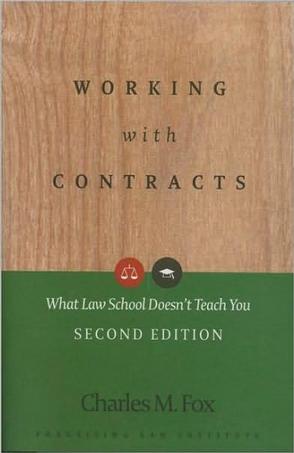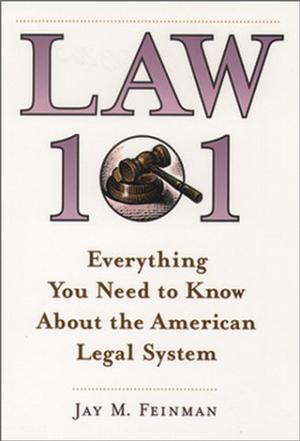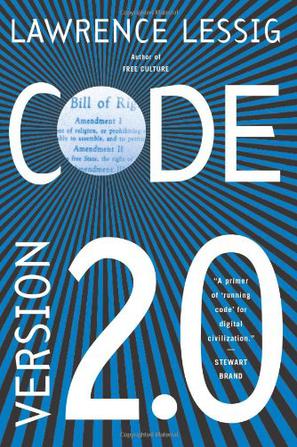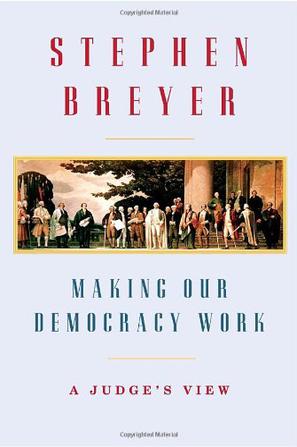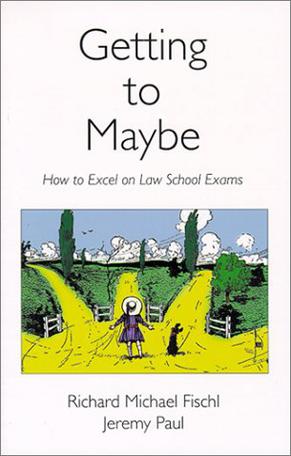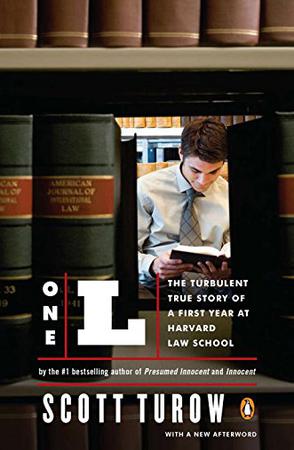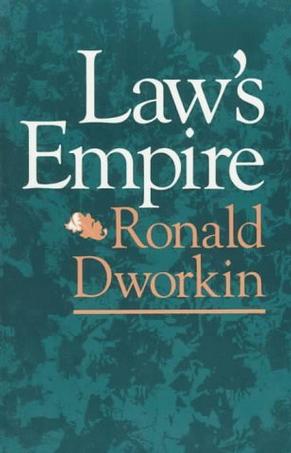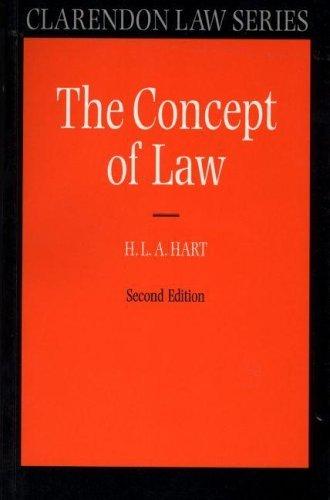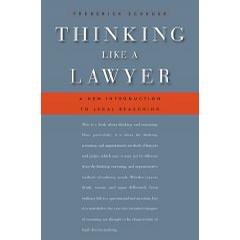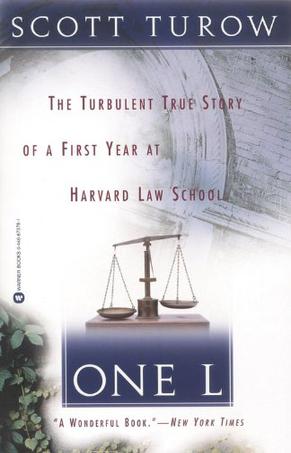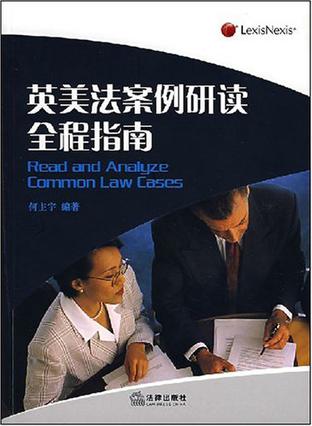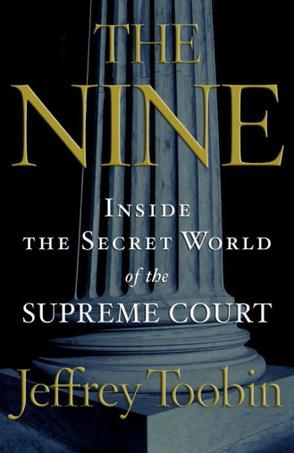欢迎来到相识电子书!
标签:law
-
Working With Contracts
Working with Contracts should become a bible for associates in large corporate firms because it offers the reader both basic and more-advanced drafting techniques and concepts. The conscientious reader will be drawn into the subject matter and may likely be surprised that such potentially complex, and perhaps dull, topics could be so inspiring. --New York Law Journal The second edition of Charles Fox's bestselling paperback guide, Working with Contracts: What Law School Doesn't Teach You, updates the original edition published in 2002. The perfect resource for new associates, law school students, business people, or anyone who frequently deals with complex contracts, the Second Edition expands existing material on contract covenants and remedies for breach of a covenant; due diligence conditions; organization of the agreement; credit-related provisions; acquisition-related provisions; the integration clause; and indemnification. Other miscellaneous revisions are found in every chapter of the second edition. In addition, the glossary and the index have been thoroughly revised. In its updated form, Working with Contracts remains the most useful and practical guide for anyone dealing with sophisticated agreements. -
Law 101
Most of us know very little about the law. We pick up bits of information from television and newspaper accounts of current legal battles, and from bestselling novels and popular movies. But these pieces do not give us an accurate or complete picture. In Law 101, Jay M. Feinman offers a delightfully clear introduction to law, covering the main subjects found in the first year of law school and giving us a basic understanding of the American legal tradition. Readers are introduced to every aspect of the legal system, from constitutional law and the litigation process to tort law, contract law, property law, and criminal law. Feinman illuminates each discussion with many intriguing, outrageous, and infamous cases, from the scalding coffee case that cost McDonald's half a million dollars, to the sensational murder trial in Victorian London that led to the legal definition of insanity, to the epochal decision in Marbury v. Madison that gave the Supreme Court the power to declare state and federal laws unconstitutional. He broadens the reader's legal vocabulary, clarifying the meaning of everything from "due process" and "equal protection" in constitutional law, to the distinction between "murder" and "manslaughter" in criminal law. Perhaps most important, we learn that law is voluminous and complex, but accessible to everyone. Anyone who enjoys Court TV will find this book irresistible. Everyone who wants a better grasp of current legal issues, from students contemplating law school to journalists covering the legislature or the courts, will find here a wonderful source of information--a complete, clear, and colorful map of the American legal system. -
Code
The "alarming and impassioned"* book on how the Internet is redefining constitutional law, now reissued as the first popular book revised online by its readers (* New York Times ) There's a common belief that cyberspace cannot be regulated-that it is, in its very essence, immune from the government's (or anyone else's) control. Code , first published in 2000, argues that this belief is wrong. It is not in the nature of cyberspace to be unregulable; cyberspace has no "nature." It only has code-the software and hardware that make cyberspace what it is. That code can create a place of freedom-as the original architecture of the Net did-or a place of oppressive control. Under the influence of commerce, cyberpsace is becoming a highly regulable space, where behavior is much more tightly controlled than in real space. But that's not inevitable either. We can-we must-choose what kind of cyberspace we want and what freedoms we will guarantee. These choices are all about architecture: about what kind of code will govern cyberspace, and who will control it. In this realm, code is the most significant form of law, and it is up to lawyers, policymakers, and especially citizens to decide what values that code embodies. Since its original publication, this seminal book has earned the status of a minor classic. This second edition, or Version 2.0, has been prepared through the author's wiki, a web site that allows readers to edit the text, making this the first reader-edited revision of a popular book. -
Making Our Democracy Work
The Supreme Court is one of the most extraordinary institutions in our system of government. Charged with the responsibility of interpreting the Constitution, the nine unelected justices of the Court have the awesome power to strike down laws enacted by our elected representatives. Why does the public accept the Court’s decisions as legitimate and follow them, even when those decisions are highly unpopular? What must the Court do to maintain the public’s faith? How can the Court help make our democracy work? These are the questions that Justice Stephen Breyer tackles in this groundbreaking book. Today we assume that when the Court rules, the public will obey. But Breyer declares that we cannot take the public’s confidence in the Court for granted. He reminds us that at various moments in our history, the Court’s decisions were disobeyed or ignored. And through investigations of past cases, concerning the Cherokee Indians, slavery, and Brown v. Board of Education, he brilliantly captures the steps—and the missteps—the Court took on the road to establishing its legitimacy as the guardian of the Constitution. Justice Breyer discusses what the Court must do going forward to maintain that public confidence and argues for interpreting the Constitution in a way that works in practice. He forcefully rejects competing approaches that look exclusively to the Constitution’s text or to the eighteenth-century views of the framers. Instead, he advocates a pragmatic approach that applies unchanging constitutional values to ever-changing circumstances—an approach that will best demonstrate to the public that the Constitution continues to serve us well. The Court, he believes, must also respect the roles that other actors—such as the president, Congress, administrative agencies, and the states—play in our democracy, and he emphasizes the Court’s obligation to build cooperative relationships with them. Finally, Justice Breyer examines the Court’s recent decisions concerning the detainees held at Guantánamo Bay, contrasting these decisions with rulings concerning the internment of Japanese-Americans during World War II. He uses these cases to show how the Court can promote workable government by respecting the roles of other constitutional actors without compromising constitutional principles. Making Our Democracy Work is a tour de force of history and philosophy, offering an original approach to interpreting the Constitution that judges, lawyers, and scholars will look to for many years to come. And it further establishes Justice Breyer as one of the Court’s greatest intellectuals and a leading legal voice of our time. -
One L
"A wonderful book...it should be read by anyone who has ever contemplated going to law school. Or anyone who has ever worried about being human." - The New York Times It was a year of terrors and triumphs, of depressions and elations, of compulsive work, pitiless competition, and, finally, mass hysteria. It was Scott Turow's first year at the oldest, biggest, most esteemed center of legal education in the United States. Turow's experiences at Harvard Law School, where freshmen are dubbed One Ls, parallel those of first-year law students everywhere. His gripping account of this critical, formative year in the life of a lawyer is as suspenseful, said The New York Times , as "the most absorbing of thrillers." -
Law's Empire
With the incisiveness and lucid style for which he is renowned, Ronald Dworkin has written a masterful explanation of how the Anglo-American legal system works and on what principles it is grounded. Law's Empire is a full-length presentation of his theory of law that will be studied and debated--by scholars and theorists, by lawyers and judges, by students and political activists--for years to come. Dworkin begins with the question that is at the heart of the whole legal system: in difficult cases how do (and how should) judges decide what the law is? He shows that judges must decide hard cases by interpreting rather than simply applying past legal decisions, and he produces a general theory of what interpretation is--in literature as well as in law--and of when one interpretation is better than others. Every legal interpretation reflects an underlying theory about the general character of law: Dworkin assesses three such theories. One, which has been very influential, takes the law of a community to be only what the established conventions of that community say it is. Another, currently in vogue, assumes that legal practice is best understood as an instrument of society to achieve its goals. Dworkin argues forcefully and persuasively against both these views: he insists that the most fundamental point of law is not to report consensus or provide efficient means to social goals, but to answer the requirement that a political community act in a coherent and principled manner toward all its members. He discusses, in the light of that view, cases at common law, cases arising under statutes, and great constitutional cases in the Supreme Court, and he systematically demonstrates that his concept of political and legal integrity is the key to Anglo-American legal theory and practice. -
The Concept of Law
H L A Hart's The Concept of Law is the classic text for the study of jurisprudence and legal philosophy and is probably the most important work of legal philosophy written this century. This second edition is particularly valuable as it combines Hart's original text with a postscript, in which he responds to criticisms of his theory levelled by such notable scholars as Dworkin, Fuller and Finnis. Written by him but only discovered after his death, it has been ably edited by Joseph Raz and Penelope Bulloch of Balliol College, Oxford. -
Thinking Like a Lawyer
This primer on legal reasoning is aimed at law students and upper-level undergraduates. But it is also an original exposition of basic legal concepts that scholars and lawyers will find stimulating. It covers such topics as rules, precedent, authority, analogical reasoning, the common law, statutory interpretation, legal realism, judicial opinions, legal facts, and burden of proof. In addressing the question whether legal reasoning is distinctive, Frederick Schauer emphasizes the formality and rule-dependence of law. When taking the words of a statute seriously, when following a rule even when it does not produce the best result, when treating the fact of a past decision as a reason for making the same decision again, or when relying on authoritative sources, the law embodies values other than simply that of making the best decision for the particular occasion or dispute. In thus pursuing goals of stability, predictability, and constraint on the idiosyncrasies of individual decision-makers, the law employs forms of reasoning that may not be unique to it but are far more dominant in legal decision-making than elsewhere. Schauer’s analysis of what makes legal reasoning special will be a valuable guide for students while also presenting a challenge to a wide range of current academic theories. -
One L
Newsweek calls him "an extraordinarily canny and empathetic observer." In bestseller after bestseller, Turow uses his background as a lawyer to create suspense fiction so authentic it reads with the hammering impact of fact. But before he became a worldwide sensation, Scott Turow wrote a book that is entirely true, the account of his own searing indoctrination into the field of law called ... The first year of law school is an intellectual and emotional ordeal so grueling that it ensures only the fittest survive. Now Scott Turow takes you inside the oldest and most prestigious law school in the country when he becomes a "One L," as entering students are known at Harvard Law School. In a book that became a national bestseller, a law school primer, and a classic autobiography, he brings to life the fascinating, shocking reality of that first year. Provocative and riveting, One L reveals the experience directly from the combat zone: the humiliations, triumphs, hazings, betrayals, and challenges that will make him a lawyer-and forever change Turow's mind, test his principles, and expose his heart. -
英美法案例研读全程指南
《英美法案例研读全程指南》是将英美案例教学的核心内容简要但却全面地介绍给国内法律界,主要用于满足国际法、英美法和其他涉外法律教学的需要,同时也适用于法律实务界培训涉外律师进行英文法律文书写作和国外法律比较研究。《英美法案例研读全程指南》亦总结了作者在国内三年英美法教学的经验,特别针对国内法学院学生在学习英美案例时可能遇到的各种问题作了一一解答。阅读纯英文的英美法案例一直是中国法学院学生的难题、法学教育国际化的屏障,也是涉外律师技能提升的瓶颈。 -
The Nine
在线阅读本书 Bestselling author Jeffrey Toobin takes you into the chambers of the most important—and secret—legal body in our country, the Supreme Court, and reveals the complex dynamic among the nine people who decide the law of the land. Just in time for the 2008 presidential election—where the future of the Court will be at stake—Toobin reveals an institution at a moment of transition, when decades of conservative disgust with the Court have finally produced a conservative majority, with major changes in store on such issues as abortion, civil rights, presidential power, and church-state relations. Based on exclusive interviews with justices themselves, The Nine tells the story of the Court through personalities—from Anthony Kennedy's overwhelming sense of self-importance to Clarence Thomas's well-tended grievances against his critics to David Souter's odd nineteenth-century lifestyle. There is also, for the first time, the full behind-the-scenes story of Bush v. Gore —and Sandra Day O'Connor's fateful breach with George W. Bush, the president she helped place in office. The Nine is the book bestselling author Jeffrey Toobin was born to write. A CNN senior legal analyst and New Yorker staff writer, no one is more superbly qualified to profile the nine justices.
热门标签
下载排行榜
- 1 梦的解析:最佳译本
- 2 李鸿章全传
- 3 淡定的智慧
- 4 心理操控术
- 5 哈佛口才课
- 6 俗世奇人
- 7 日瓦戈医生
- 8 笑死你的逻辑学
- 9 历史老师没教过的历史
- 10 1分钟和陌生人成为朋友

